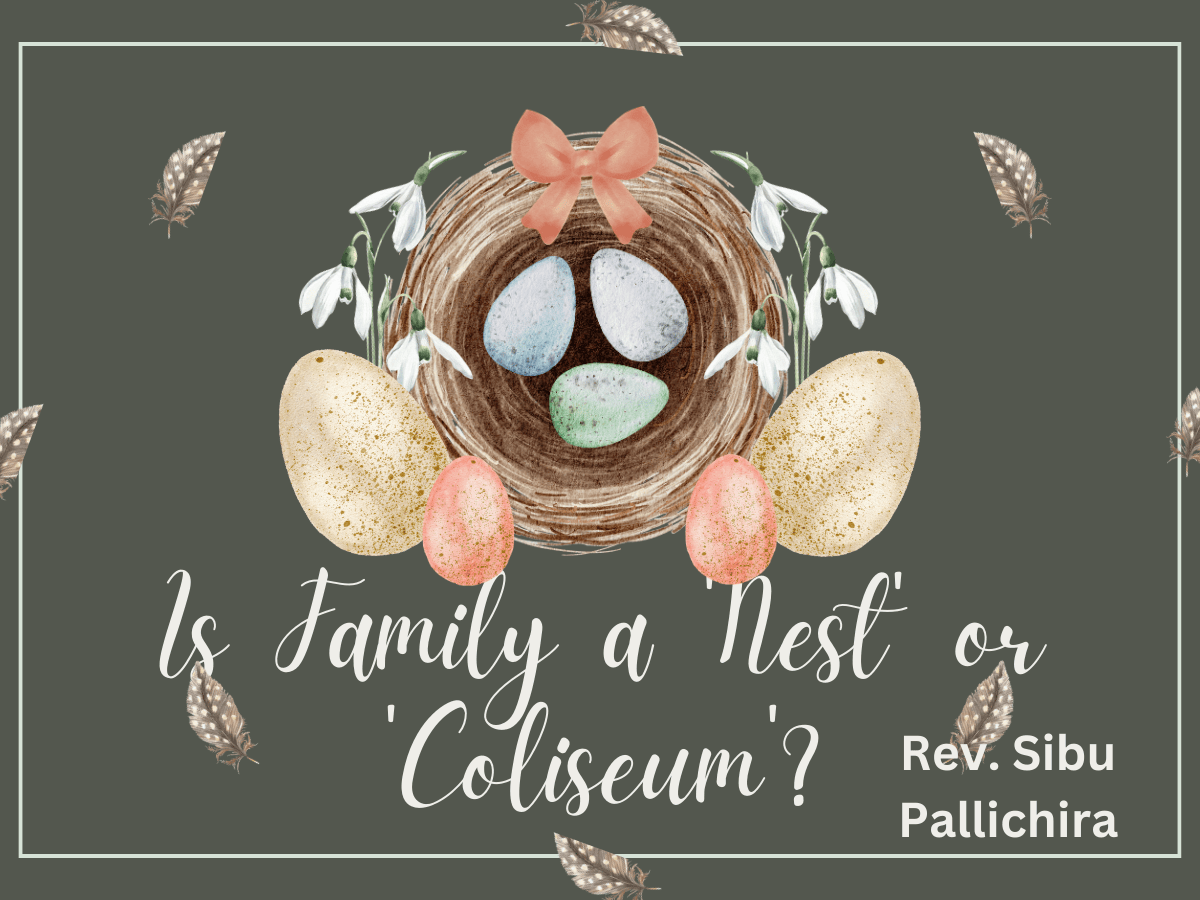
‘Cast your cares on the Lord and he will sustain you; he will never let the righteous fall’ (Ps.55:22). Usually family is seen as an epitome of care and protection and considered as a place where the physical and emotional needs of each individual is met. But, there are cases where family becomes a site of violence and where the individual feel insecure and rejected.
A young girl had a difficult childhood because of a limp. She was subject of ridicule among friends and relatives. After her marriage she had to live in a joint family consisting of her husband, mother-in-law, brother-in-laws and their families. Unfortunately there was a death in the family that lead them to conclude the calamity came upon them due to the girl being ‘ill-fated’.
Soon her husband died while she was pregnant, the mother-in-law forced her to abortion and threw her out of the house. When they realized that only the wife could receive the money due to the deceased husband from the government, they brought her back just for this cause and threw her out again! The ‘love & security’ a person enjoys and ‘trust & faith’ the person has learned and experienced makes the person grow as a wholesome well adjusted person.
Being a subject of ridicule, the girl developed ‘Depressogenic schemas’ (Dysfunctional beliefs that are rigid, extreme, and counter productive, and that are thought to leave one susceptible to depression when experiencing stress). ‘Post-Abortion Syndrome’ (PAS) is a term that has been used to describe the emotional and psychological consequences of abortion that includes guilt, anger, anxiety, depression, and psychological ‘numbing’ etc. Some may occur immediately after an abortion, and others may take months or even years to surface.
In the case of this girl, it is further aggravated by the fact that the abortion was conducted without her consent. Catastrophe and personal tragedy significantly affect the person, particularly the vulnerable. Again, in the case of this girl, it had its toll. Negative thoughts about oneself /circumstances / future can lead to depressive mentality among people. These are thoughts that are rigid, extreme and counter productive that tend to leave one susceptible to depression when experiencing stress. Illustratively, ‘nobody loves me, I am worthless’ kind of thoughts during childhood/adolescence.
When such dysfunctional beliefs are activated by current stressors, they tend to fuel the current thinking pattern, creating a pattern of ‘negative automatic thoughts’. The case of this girl is just an example of the unnoticed people who have to face the brunt of the disaster. She had faced many negative experiences because of her physical disability. Due to the ridicule that she suffered during childhood, she developed negative feelings about herself.
All these led to the formation of dysfunctional beliefs in her. She formed the opinion that she was inferior to others and that nobody likes or loves her. It is with these dysfunctional beliefs that she got married. When the blame for the death of her husband’s brother was put on her, her in-laws were associating her physical deformity with bad fate. Thus, her dysfunctional beliefs were affirmed. In such a setting, when the tragedy struck and when her husband was killed, she was blamed again for her bad fate. So the Tragedy is not the sole reason for her depression, rather Tragedy made her depressed when she was vulnerable. So our focus should be on the situations that made her vulnerable for depression. Since the Church is called to liberate the vulnerable, it should play an active part in crucial aspects of life that needs attention and action.
Author: Rev. Sibu Pallichira is an ordained minister of the Mar Thoma Church.


